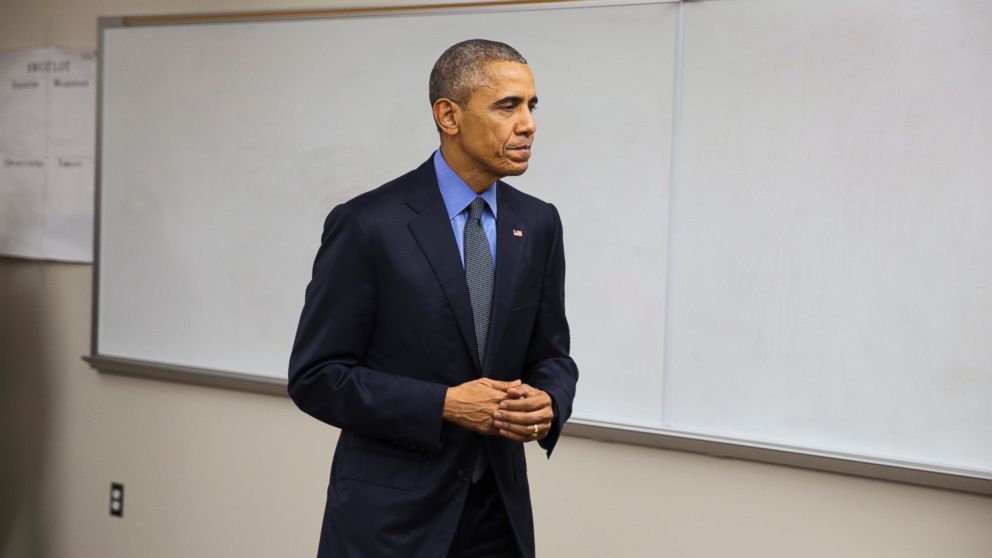ANALYSIS: President Obama Pursues Quiet Strategy Through Noise in Final Year
— -- He came to office armed with a once-in-a-generation political movement -- powered by hope and the promise of change, all making his unlikely presidency and early accomplishments possible.
Now, with just one year left in a tumultuous second term, President Obama again is witnessing powerful forces, only now ones that are pushing the nation in much different directions. An anxious nation enters a political year with security and economic fears and with loud, angry voices dominating.
The dynamics make for a special challenge for a lame-duck president with mixed success in moving the levers of government. It suggests a quieter year for a humbled president -- yet still an ambitious and active one, with a rare window for governing presenting itself through the outside noise.
“The president has some more tricks up his sleeve,” said Bill Burton, a former White House aide who was among the first campaign workers hired by Obama when he launched his bid for the presidency. “He’s more likely to sprint to the finish line than go away and whimper.”
Obama’s realistic legislative goals for the year, according to White House aides and outside analysts, are modest by the standards set early in his time in office. He’ll be playing more defense than offense, preserving ground gained in those early, heady days of 2009 and 2010.
The president will push Congress to approve a trade deal, and will press for criminal justice reform and closing Guantanamo Bay. Expect executive orders on gun control and environmental protection, though without real prospects for congressional action on either.
On the foreign front, normalizing relations with Cuba will be a focus. So, of course, will be confronting terror threats and managing military engagements in Syria, Iraq and Afghanistan. He hoped to be known for ending wars, but now he’d settle for not having to start new ones.
The president is actually coming off a relatively productive year for this point in his time in office, though world events are threatening to overshadow his later accomplishments, said Julian Zelizer, a presidential historian at Princeton University.
“This is far from a period like 2009-2010, with great policy breakthroughs,” he said. “If the situation overseas gets worse, that could be all we remember.”
The president is also planning to take on a role as a “visible campaigner,” according to one White House official. His precise role is likely to be dictated by the Democratic nominee; if that’s Hillary Clinton, that means campaigning will be determined by the Clinton campaign and the complicated relationships with Obama’s political orbit that are involved.
Through all the outside noise, an unexpected window for action has presented itself. Republicans rid themselves of one House speaker and installed a new one, Paul Ryan, who has shown an early ability to cut deals and keep his rank-and-file in line.
Then there’s the current Republican frontrunner, whose channeling of voters’ frustrations virtually cries out for the type of responses Obama is best at offering, in the view of the president’s allies.
“The longer Donald Trump is in the mix, the more the vast majority of Americans are yearning for an adult in the national conversation,” Burton said.




